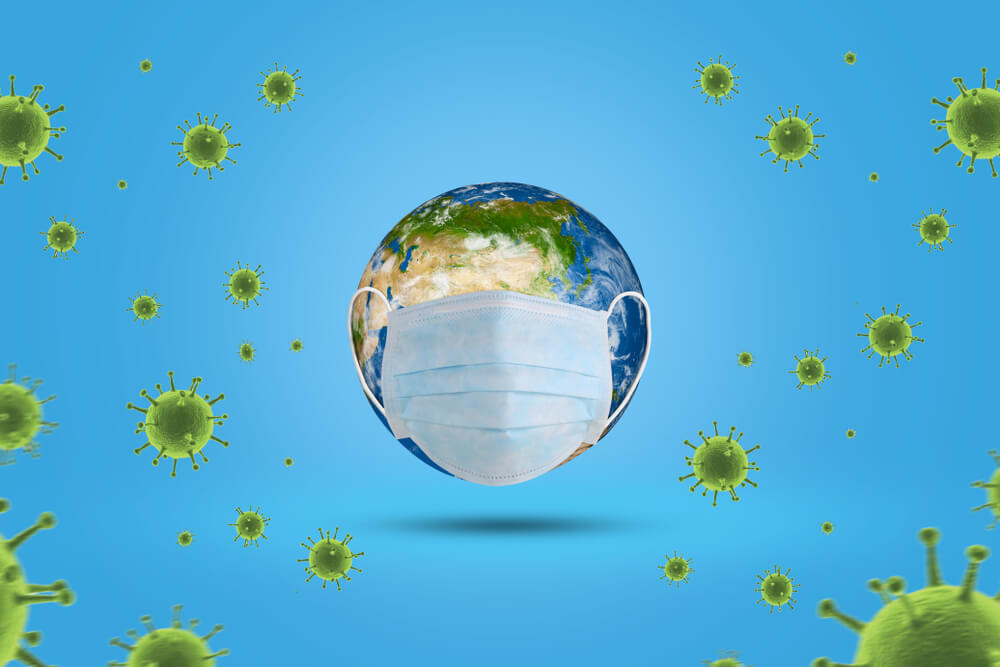How to deal with stress and social distance during a COVID-19 outbreak
'28.03.2020'
Source: www1.nyc.gov
Forced self-isolation in connection with the epidemic of coronavirus can cause anxiety and stress in many people, disrupting the usual course of life. On the New York City Hall Website A list of recommendations has been published that will help you deal with negative feelings and survive this difficult period.

An outbreak of a disease can cause stress, especially when we all have to carefully monitor our health, stay at home as much as possible and avoid any unnecessary social (physical) interaction with others.
Social distance and isolation may well disrupt the usual course of work, family life, daily activities, and interactions with other people. This can make the situation even more tense.
It is natural to feel stunned, anxious, afraid, or experience other symptoms of depression, such as insomnia. To reduce the negative effects of stress, be prepared for normal reactions. Do things that reduce stress and seek help.
Know what to expect.
Stress can affect your thoughts, feelings, and actions. Most effects are a normal reaction to depressing events and, as a rule, pass quickly.
Here are some of the possible effects and symptoms:
- Physical effects: fatigue, impotence, headaches, palpitations or deepening (aggravation, aggravation, worsening) of pre-existing diseases.
- Emotional effects: feelings of sadness, anxiety, anger, agitation, or irritability.
- Psychological effects: disorientation, forgetfulness, inability to concentrate or make a decision.
- Behavioral effects: manifestation of uncharacteristic behaviors, such as agitation, conflict or temper, change in eating habits or sleep patterns.
Stay up to date
Refer to reliable sources of information about the outbreak to stay informed, understand the dangers and the best ways to protect against them. Try not to spread unverified news and not be guided by rumors, as this exacerbates misinformation, fears and panic.
For COVID-19 information, visit nyc.gov/coronavirus or cdc.gov/coronavirus.
Limit your time on the Internet
If you spend too much time on your phone or computer, listen to news broadcasts daily and around the clock, this can increase your anxiety and fear. Take an interest in news and recommendations two or three times a day.
Stay in touch and chat
Keep in touch with your family, friends, and social environment via email, social networks, newsgroups, phone, FaceTime, or Skype.
On the subject: Side effect of self-isolation: New Yorkers drink more often
Think about whether you should call neighbors who know older or lonely people to find out how they are doing and if you need to worry about them.
Maintain the rhythm of life
Continuing regular classes gives us the opportunity to feel that we are managing the situation. This will reduce anxiety. If possible, try to continue regular daily activities or, if necessary, introduce new ones - this will help you get comfortable with the changes.
Keep a positive attitude
Focus on what you are grateful for, as well as all the good things in your life. Take enthusiasm and inspiration from positive examples of those who manage to cope with the situation and remain strong.
Take preventative measures regarding basic needs and financial issues
Think about your situation and see if you have everything you need, such as food and medicine, for a safe and comfortable life.
If you are unable to work, inform the employer and discuss all options for quitting. Contact the companies that bill you on a monthly basis and request reorganization of payments.
To find out about other available resources, call 311 or visit the service page 311 NYC Coronavirus (COVID-19) and City Life (Coronavirus (COVID-19) and City Life).
Be smart and sensitive.
Do not suspect or blame people for their illness based on how they look and where they come from. There is no connection between infectious diseases and racial / ethnic origin.
Do not leave unanswered statements containing false rumors or negative stereotypes that stimulate or support racism and xenophobia. If you experience harassment due to your race, country of origin, or other personal characteristics, call 311 or visit the NYC Commission on Human Rights website and file a complaint electronically.
Ask for help
An outbreak of an infectious disease like COVID-19 can cause stress for you, your loved ones, and friends. As already mentioned, it is natural to feel overwhelmed, anxious, afraid, or experience other symptoms of depression, such as insomnia.
To relieve stress and maintain control of the situation:
- Try to maintain a positive attitude.
- Remind yourself of your strengths.
- Keep in touch with friends and family.
- Use healthy stress management skills
NYC Well System
If you feel that the symptoms of stress are becoming too strong, you can contact trained NYC Well consultants (Safe New York). This is a free and confidential psychological assistance service that helps New Yorkers cope. NYC Well employees are available 200 hours a day. They can provide a brief consultation and recommend a specialist in more than XNUMX languages.
For assistance, call 888-692-9355, send a WELL text message to 65173 or use online chat.
To find applications and network resources that help to maintain health and emotional well-being, you can visit the page while sitting at home. nyc.gov/nycwell and go in there Application Library.







